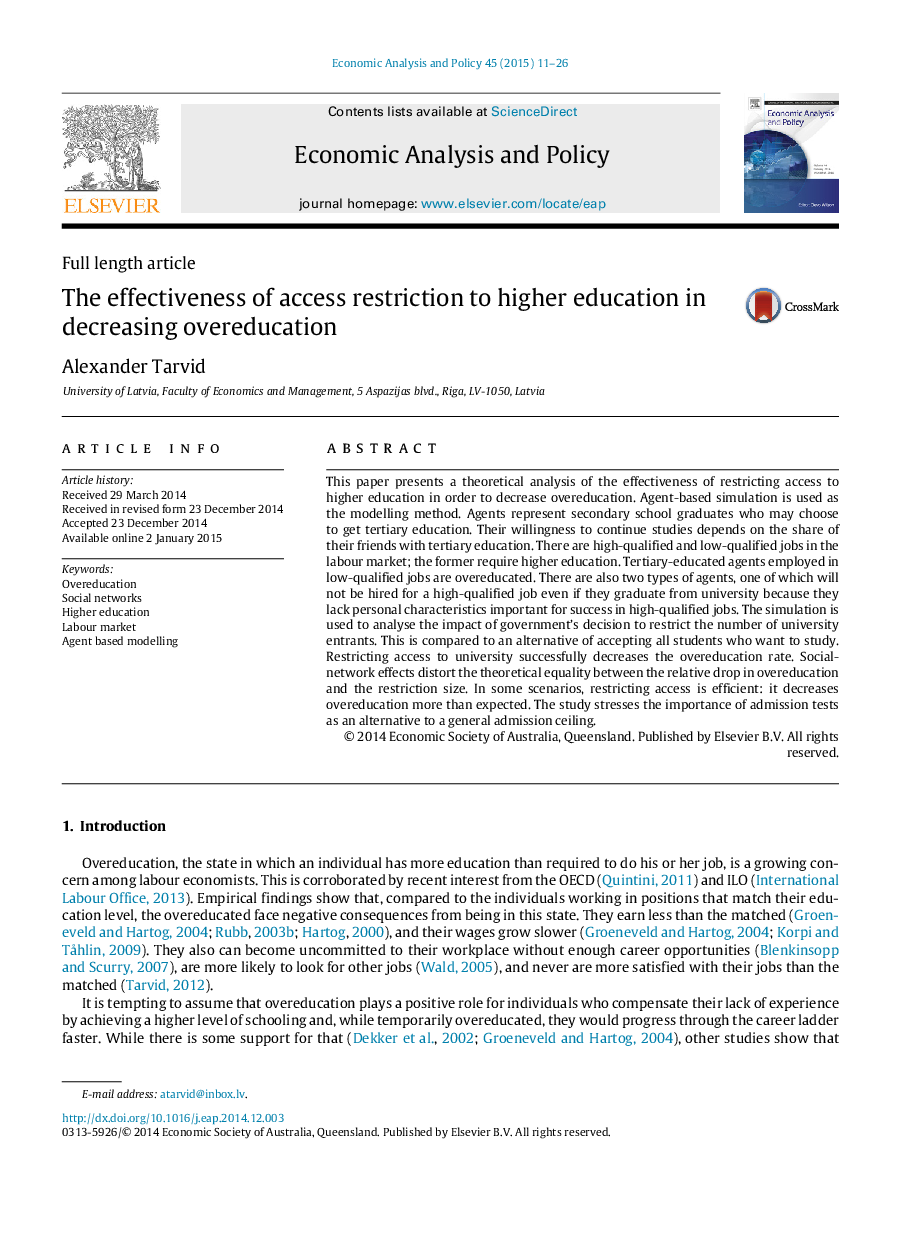| Article ID | Journal | Published Year | Pages | File Type |
|---|---|---|---|---|
| 5052783 | Economic Analysis and Policy | 2015 | 16 Pages |
Abstract
This paper presents a theoretical analysis of the effectiveness of restricting access to higher education in order to decrease overeducation. Agent-based simulation is used as the modelling method. Agents represent secondary school graduates who may choose to get tertiary education. Their willingness to continue studies depends on the share of their friends with tertiary education. There are high-qualified and low-qualified jobs in the labour market; the former require higher education. Tertiary-educated agents employed in low-qualified jobs are overeducated. There are also two types of agents, one of which will not be hired for a high-qualified job even if they graduate from university because they lack personal characteristics important for success in high-qualified jobs. The simulation is used to analyse the impact of government's decision to restrict the number of university entrants. This is compared to an alternative of accepting all students who want to study. Restricting access to university successfully decreases the overeducation rate. Social-network effects distort the theoretical equality between the relative drop in overeducation and the restriction size. In some scenarios, restricting access is efficient: it decreases overeducation more than expected. The study stresses the importance of admission tests as an alternative to a general admission ceiling.
Related Topics
Social Sciences and Humanities
Economics, Econometrics and Finance
Economics and Econometrics
Authors
Alexander Tarvid,
